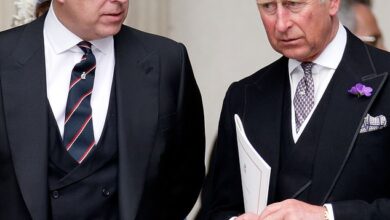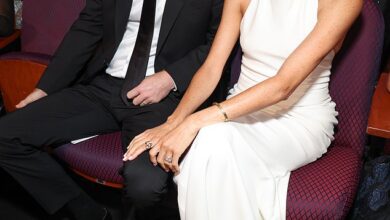Was Prince Harry on a rare visa ‘especially for royals’ when he moved to the U.S.? Status would mean not having to answer questions about drug use, immigration expert says
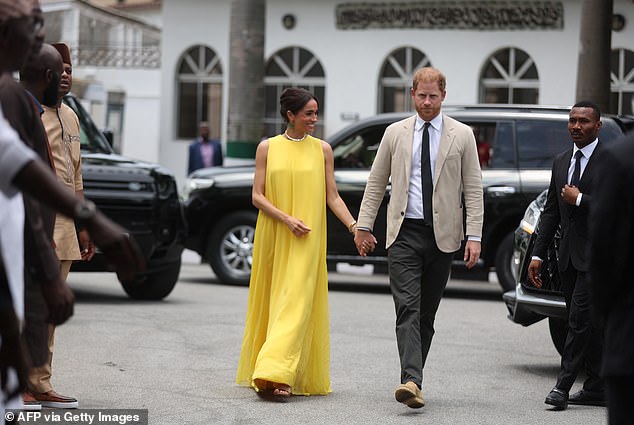
Prince Harry could have entered the United States on a rare category of diplomatic visa, and might still be using it, according to an immigration expert.
The suggestion comes amid an ongoing effort to force the public disclosure of the Duke of Sussex‘s immigration records following his admissions about drug taking in his memoir ‘Spare’.
The Duke may have been entitled to use the special visa to enter the U.S. when he moved there with his wife Meghan Markle in 2020.
It would have meant he was not vetted by U.S. authorities for past use of drugs.

Britain’s Meghan (L), Duchess of Sussex, and Britain’s Prince Harry (R), Duke of Sussex arrive at the State Governor House in Lagos on May 12, 2024 as they visit Nigeria as part of celebrations of Invictus Games anniversary
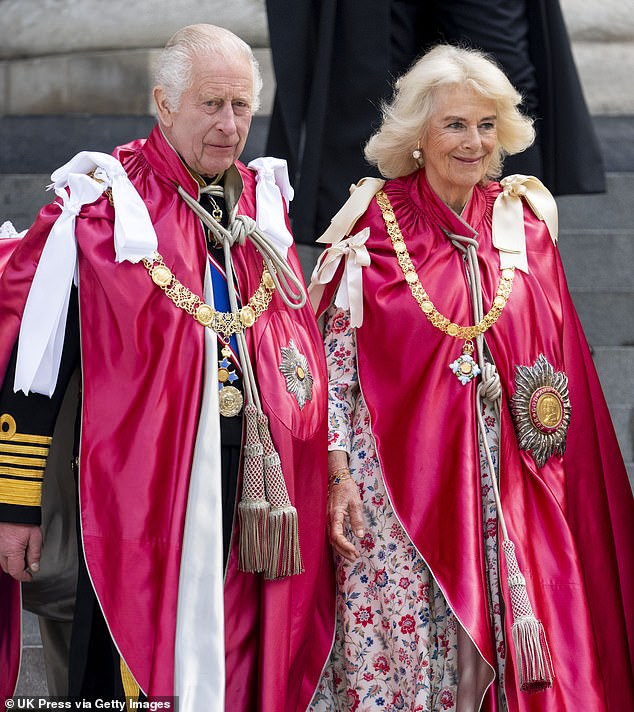
Queen Camilla and King Charles III attend a service of dedication for the Order of The British Empire at St Paul’s Cathedral on May 15, 2024
London-based US Immigration lawyer Melissa Chavin said the Duke could have been on an ‘A-1 Head of State’ visa, which is used by heads of state and royal family members, since he is fifth in line to the throne.
‘It’s just extremely special,’ she told Dailymail.com. ‘And the security check is not the same. It’s a lower security check.
‘It’s a visa especially for members of royal families. For an A-1 Head of State visa, the security and background check questions are not the same as for most visa applicants. They are only vetted for espionage, terrorism and activities contrary to US foreign policy.’
The A-1 ‘Head of State’ visa is distinguishable from the A-1 visa, which is for senior diplomats.
Holders of an A1 visa, such as an ambassador, are supposed to come to the US to work as a senior diplomat.
But an A-1 Head of State visa holder is free to come to the US without working as a head of state or royal family member.
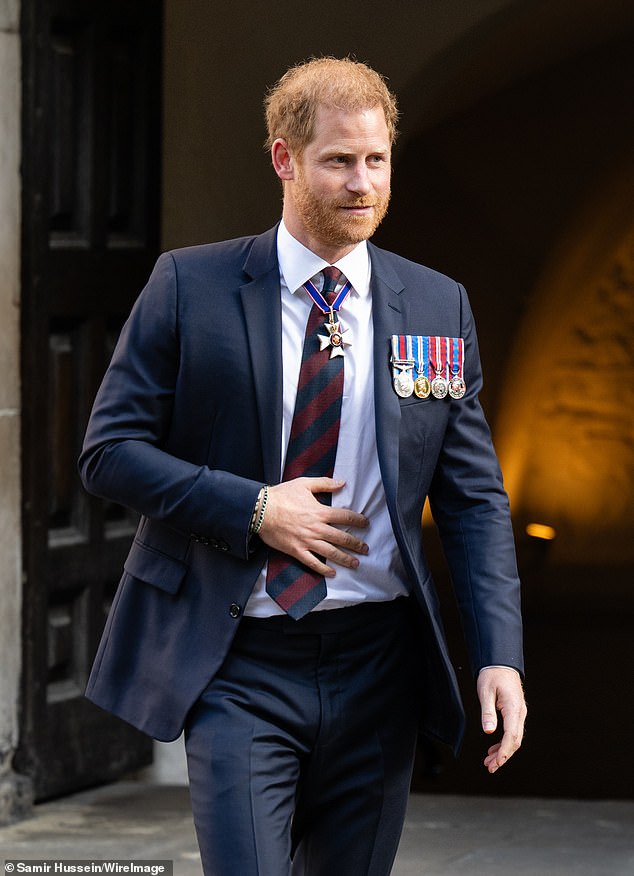
The Duke of Sussex departs The Invictus Games Foundation 10th Anniversary Service at St Paul’s Cathedral on May 08, 2024 in London, England
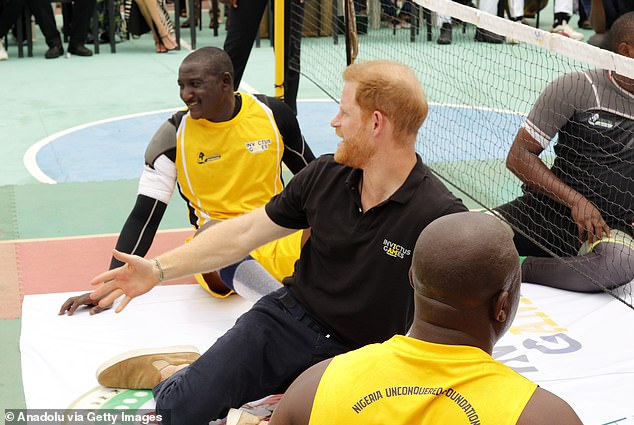
Prince Harry, Duke of Sussex, attends an exhibition sitting volleyball match at Nigeria Unconquered, a community-based charitable organization dedicated to aiding wounded, injured, or sick servicemembers, as part of celebrations of Invictus Games anniversary in Abuja, Nigeria on May 11, 2024
Prince Harry would not have needed to be a working royal or representative of the British government.
If he does possess such a visa, he would be able to keep it as long as he remains in line for the throne, Chavin said.
On each entry to the country he would be given ‘duration of status’ meaning he can stay in the U.S. indefinitely each visit.
According to the U.S. Embassy in London to qualify for a regular A-1 diplomatic visa the applicant ‘must be traveling to the United States on behalf of your national government to engage solely in official activities for that government.’
That is with the exception of the ‘Head of State or Government’ who qualifies for an A-1 visa ‘regardless of the purpose of the visit to the United States.’
According to the U.S. Code of Federal Regulations, ‘members of a reigning royal family’ qualify for an A-1 visa.
And there is an exception for anyone ‘individually authorized’ by the U.S. State Department, allowing for discretion.
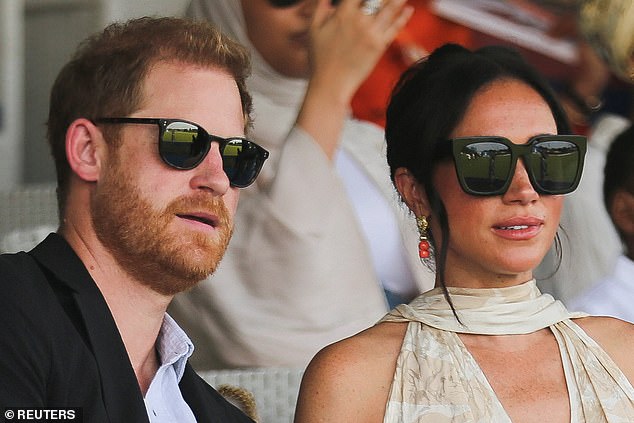
Prince Harry, Duke of Sussex and Meghan, Duchess of Sussex attend a polo fundraiser event in Lagos, Nigeria, May 12, 2024
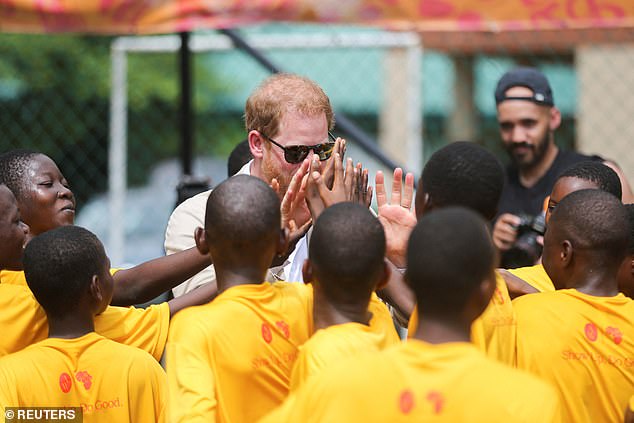
The Duke of Sussex attends a basketball event in Lagos, Nigeria, May 12, 2024
The regulations say: ‘In any case in which there is uncertainty about the applicability of these regulations to a principal alien applicant requesting such nonimmigrant status, the matter shall be immediately referred to the (State) Department for consideration as to whether acceptance of accreditation will be granted.’
When background checks are done only the terrorism and national security aspects of the US Immigration and Nationality Act would then apply.
That would mean the Duke only being vetted for risks including ‘espionage,’ ‘sabotage,’ ‘terrorist activities’ and ‘overthrow or opposition to U.S. Government,’
He would not have been vetted for past abuse of drugs, addiction, or crimes related to drugs.
Nor would his later admission of drug use in his book affect such a visa.

Meghan Markle, centre, shake hands with a girl on a wheelchair during the Giant of Africa Foundation at the Dream Big Basketball clinic in Lagos Nigeria, Sunday, May 12, 2024
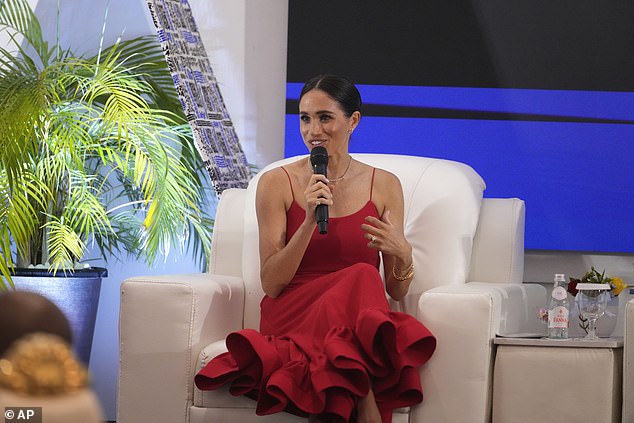
Meghan, the Duchess of Sussex, speaks during a women in Leadership events in Abuja, Nigeria, Saturday, May 11, 2024
The possibility comes amid an ongoing legal battle by the Heritage Foundation, a Washington-based think tank, to force the disclosure of the Duke’s visa records.
It has sued the Department of Homeland Security (DHS) seeking to establish why the Duke was admitted despite public admissions of drug use.
When applying for a non-diplomatic U.S. visa foreigners are asked on the DHS’s DH160 visa form: ‘Are you or have you ever been a drug abuser or addict?’
They are also asked whether they have ever ‘violated any law relating to controlled substances’.
If they answer ‘yes’ they can still receive a waiver.
The Heritage Foundation wants to see if Harry admitted to using illegal drugs before gaining a visa.
They also want to establish if he was granted a waiver and given any favorable treatment.
Sources close to the Duke have previously indicated that he answered truthfully on his visa application.
However, it has not been confirmed which type of visa he applied for.
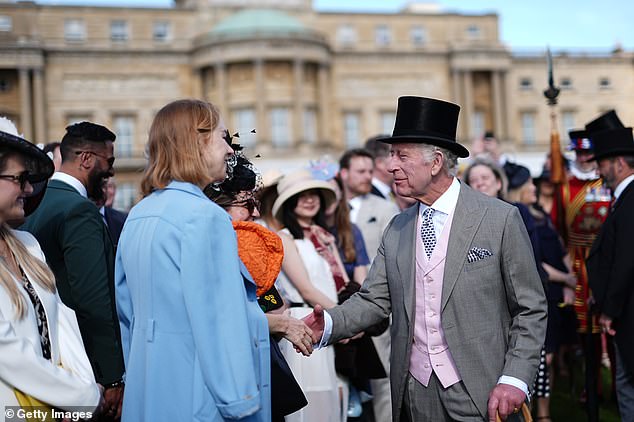
King Charles III greets guests during the Sovereign’s Creative Industries Garden Party at Buckingham Palace on May 15, 2024
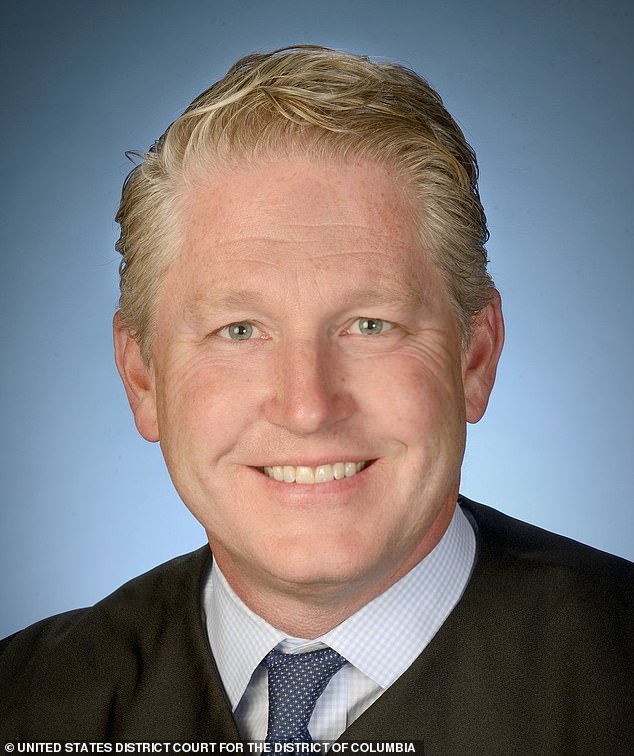
United States District Judge Carl J. Nichols. Carl John Nichols
The judge in the Freedom of Information case, Judge Carl Nichols, recently ordered the DHS to hand over paperwork to do with the Duke’s immigration status for him to review.
He has not yet made a decision on whether to make it public.
At a hearing in Washington in February, Judge Nichols and John Bardo, the lawyer for the DHS, repeatedly discussed whether the Duke could be on an A-1 diplomatic visa.
Mr Bardo told the court: ‘He could be on a Category A diplomatic visa. It’s possible. We would argue that it’s possible,’
Judge Nichols asked whether it was ‘plausible’ that the Duke was ‘here as a diplomat for the UK’.
Mr Bardo replied: ‘It is certainly plausible.’
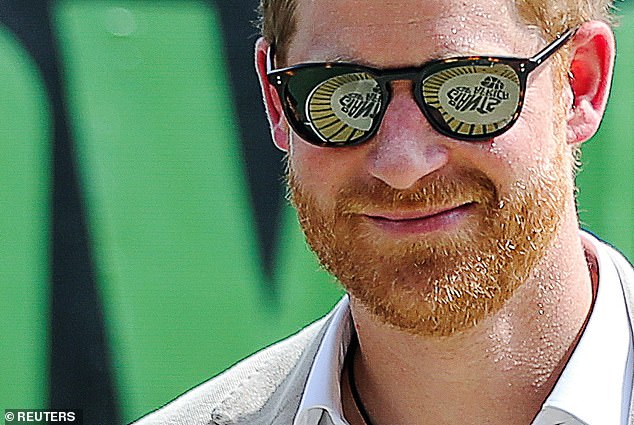
The Duke of Sussex attends a basketball event in Lagos, Nigeria, May 12, 2024
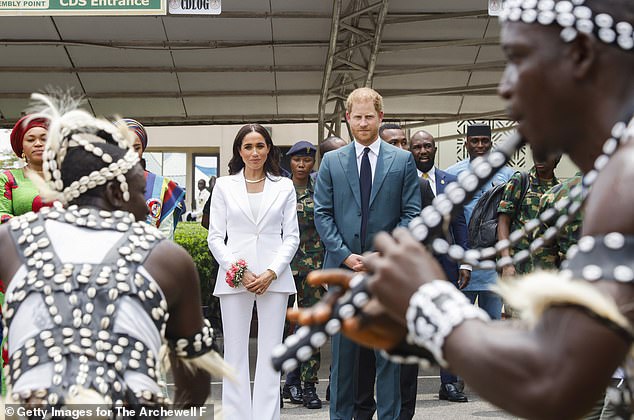
Prince Harry, Duke of Sussex and Meghan, Duchess of Sussex in Abuja, Nigeria on May 10, 2024 in Abuja, Nigeria
The judge questioned the idea ‘given the current relationship between the Duke and his father.’
But Mr Bardo said: ‘It’s possible for him to have a diplomatic visa. He is still a member of the British royal family. He has the title, Duke of Sussex.’
During the legal proceedings the DHS has described the Duke as a ‘public official in the UK’.
Lawyers for the Heritage Foundation have argued that it would be ‘absurd’ for the Duke to be on a diplomatic visa, and if he is then there should be ‘questions in Parliament’ about it.

